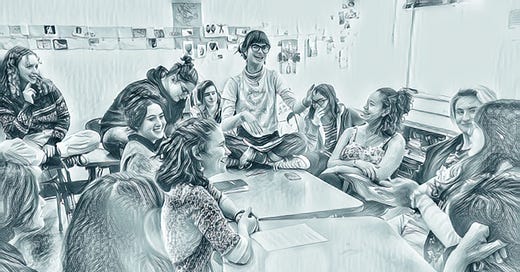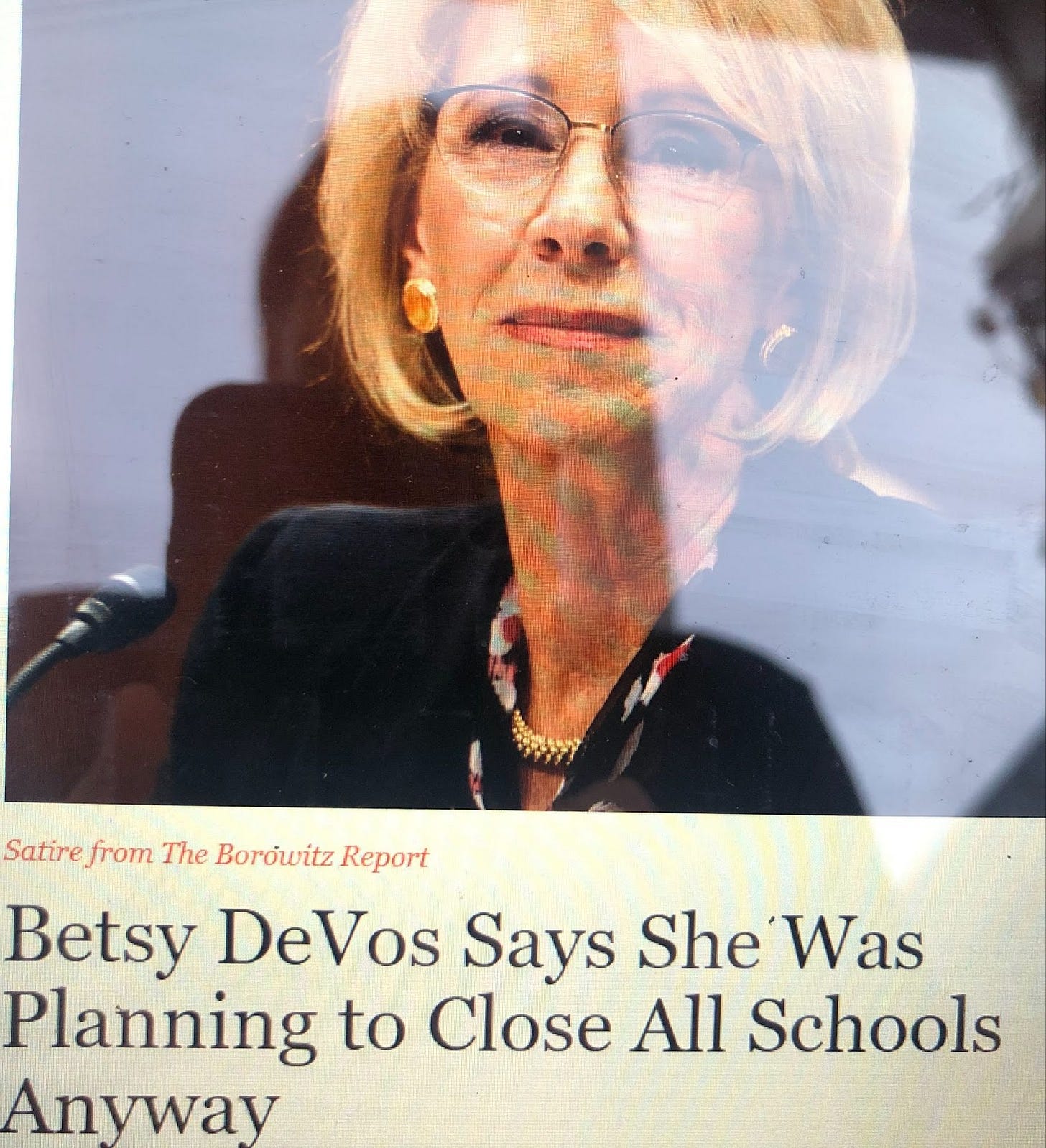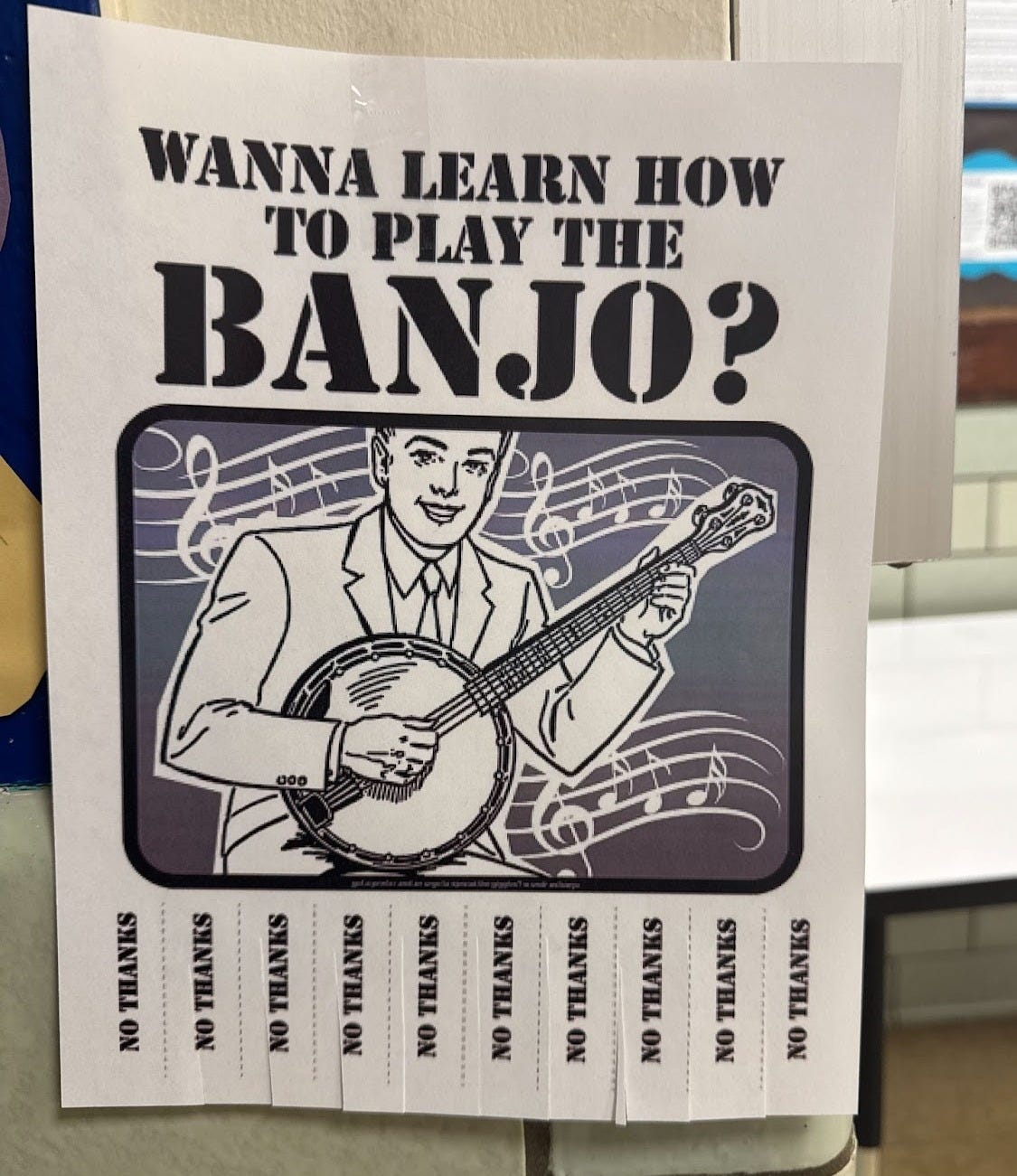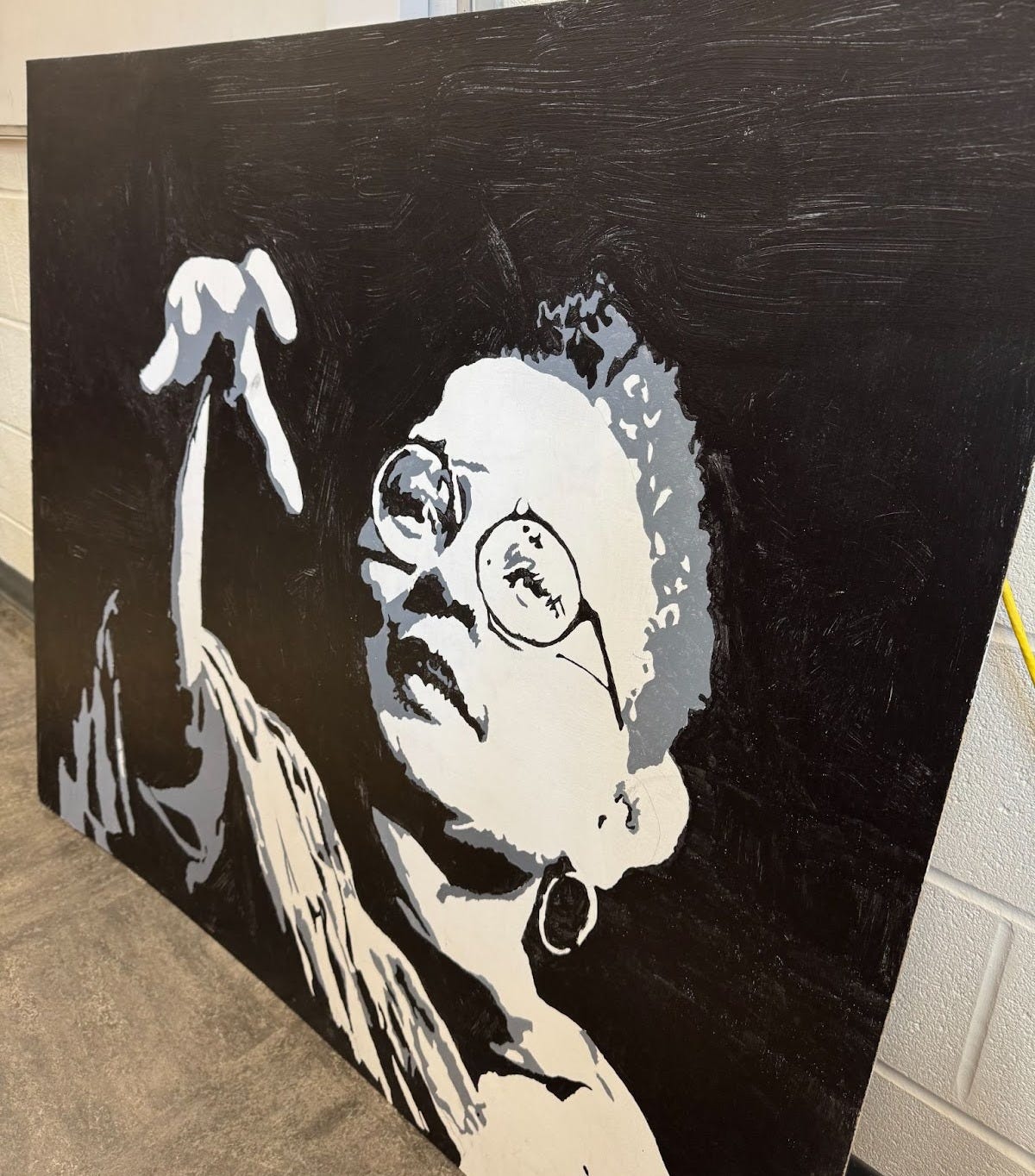Graduation Season 2: 2020/ 2025
“Mushroomed: after a rain mushrooms appear on the surface of the earth as if from nowhere..." - Rebecca Solnit, Hope in the Dark
2020
I’ve been thinking about pandemic teaching a lot lately. In 2020 I was teaching a pile of electric students I loved and admired in a frenzy of new curriculum around democratic theory and practice. Some students and I had taken to sitting on the floor in the hallways to plan our small public school’s weekly all school meetings, because everyone we needed walked right by that spot.
A small group in our building was in the midst of planning a multigenerational summit for our whole community: “Be There” it was called.
And then that whole centrifugal pull lost its center of gravity, and we were sent home.
I remember a nutty, desperate quality in the probing looks, the dark humor and poignant words about community care we all passed around the week before the coronavirus shut down our shared spaces. I remember the rushing in my belly and head when I got the text blast from the school district saying it would be two weeks, knowing nothing except that two weeks was fundamentally a grasp, child's play.
Exhausted teenagers went to their beds, some with relief. Some went outside and hung out with chickens and pigs and some went on long, scavenging walks. Some got lost in space and time, some forever, and some just got swallowed by tiktok or Minecraft.
At home, we took our small kids outside for long stretches into the cold, early spring. I remember the rushing away of all that had mattered so much and the rushing towards all that blinded and mattered most.
Told to do so, my students and I tentatively began logging onto google meet. But it was all over, what we’d been up to. In the absence of the gift of landing that beautiful arc we were making that year, I wrote them this poem as a graduation offering.
To the Class of 2020,
I walked into the dark school a few days after we closed to get some things,
I don’t remember what.
It all seemed urgent--the papers, our work, our plans.
I walked into a wave of shock and grief. The breath we let out on Friday afternoon
was still thick in the spaces, I opened the door
and the lives we’d been living were still warm in there. I cried.
There was no not crying. There was no sense in not knowing.
I gathered my plants and took them back home.
We dissipated all that energy but it’s still there,
It’s out there in all the spaces you inhabit,
flung, and it’s gathering.
I see you, sitting there, endlessly.
I see you not knowing.
I see you knowing, too.
I see you springing from this.
At the first chance to show the world what it means to live, you will spring.
I see you falling in love, I see you showing us the art you make,
your disjointed brilliance,
I see the daring of what you’ll do to heal from this indelible, grieving pause.
There is no sense in this. It’s so hard, so boring, so painful.
There is such stillness in this chapter of the story.
This is the chapter a reader earns their way through
to feel something deep in the heart.
I like to say that humans get really confused about literature
because we grieve for characters who die, thinking they are human
rather than points someone needed to make and only pen and ink were there.
We misunderstand and cry, and we forget to listen.
And then we get really confused and think we live like characters in a book,
that our lives are supposed to make sense and have an arc and some kind of message.
But you are a poem, not a protagonist. And dissonant, and building.
You are a song that lifts and subsides, symphonic, inaudible, unresolved.
Even in this stillness part of you sings to yourself in the breeze.
You are listening; it is listening back.
It sees you, this transcendent gathering in the miserable, beautiful lot of you out there.
Forsythia and daffodils stare us down.
So garish--this palette of grays and purples and bright green
an homage to now, sulky colors
splashed with turbulence and hope--
audacious, opulent, disturbing--
too many words, too few.
It doesn’t matter if all you do right now is stare back.
At the first chance to show the world what it means to live, you will spring.
We will listen.
2025
It is June, 2025, and those 2020 graduates are just about old enough to rent a car, the final gateway to adulthood. They are an extraordinary lot. Every time I bump into them or hear back, I am struck by what a groovy, talented, genius bunch they are.
I sit again, in the storms brought by 2025, procrastinating on writing the end of year narrative evaluations our students get instead grades. Yes, you can do that in a public school. Yes, let’s stop assigning numbers and letters to human beings, for crying out loud.
It’s messy, but I’m stunned again and spinning lyrical about the ferocious gifts the young people who will graduate from our small school next week offer the world.
The 2025 kids are so damn sassy.
A student (TG) wrote this sentence & footnote (read it!) into a paper last week:
But the thing is, I believe most “classroom incivilities” are caused by the grading system – cheating, plagiarizing, grade grubbing, and memorising only what’ll be on the test, are all motivated by the presence of a test. … And with generative AI, what they ‘have to’ learn is sometimes now as little as a two sentence assignment prompt.²
[2] Of course, the day after writing this paragraph I was talking to a friend who was explaining her impatience with having to reread and reword parts of her ai generated essays in order to make them undetectable to ai checkers. “I’d use one of the ai writing-style scramblers but the grammar gets so messed up. It’s so annoying. I know, basically, what these things are looking for. But it still takes like twenty minutes.”
Next year we will write in pencil.
I learned a lot from an educator named Joel Spring in grad school, an anarchist who writes about education as an indoctrinating force. His book Wheels in the Head has a chapter about education in an authoritarian state. In it, he writes about Anton Makarenko, a communist theorist of education who worked under Stalin. Makarenko criticized an education that raised children as individual blooming flowers. Rather, he argued, we should raise children as fruit trees, pruning for productivity and output in service of the state.
These 2025 kids won’t be having that. Their humor, for starters.
The collages they leave on my desk.
There’s something else afoot. I have a new kind of humility before it.
It used to be that they’d ask to go outside on the first sunny spring day. Now they insist on going outside for class even when it’s snowing. One of them criticized the perfectionist rock tower I made while we talked about the text, and challenged me to branch out a little. With love.
I took it apart and made a pretty cool rock cave, instead. It kind of felt a little like I was 10 again, happy with the little imaginary place I’d made.
I’m telling you, it doesn’t bother me, their sass and expansive questioning of every damn thing. One (AA) advocates fiercely for the value of half-formed thoughts. Each essay he writes sings with the transdisciplinarity which is where he lives, which hates to be confined, but which expresses, I believe, the kind of thinking required of us by the world. Take this excerpt, for example, from a meditation he wrote about a mosh pit:
The feeling of intimacy, or understanding which accompanied our exchange
of smile, perhaps an exchange of life, a love and a high brought on by the show the deep brotherhood of the room which really makes you feel like you get exactly how it feels for plants, linked by mycelium, sharing plant nutrients, communicating, separate but so irrevocably together that it destroys to be pulled from the network. Perhaps self requires a collective.
Another student (EI), the one with no phone, wrote this: “I think democracy is the thing I feel in my hands like molded clay in the middle of a really good conversation or argument.” Not voting. Clay.
“Make beautiful shit together!” writes Ross Gay.
They are autodidactic, ruminating, fundamentally decent. One (TH) writes “my sheer stubbornness to NOT do homework has withstood my twelve years in the public school system.” This is the student who delivered the larger than life original portrait of bell hooks that I have wanted forever, the best moment of this school year, even though it’s true he barely finished his work for the class.
I’m telling you, they are something. I will close this rambling post passing along a gift to you, a little gemstone. A member of the class of 2025 (OS) hipped me last week to the idea of a “coffee vacation.” What is this, you ask? “INSTRUCTIONS: Take a coffee vacation. For the time it takes to drink your morning coffee, (or your night coffee), do nothing else. Put it all away, close your eyes, and focus on nothing other than the taste of the coffee and how your body feels. Focus until you can feel it everywhere, to the tips of each finger. Escape into it and disappear.” I’m telling you, these kids...
Just, please, put them in charge already.










Don’t you have to be 25 to rent a car?